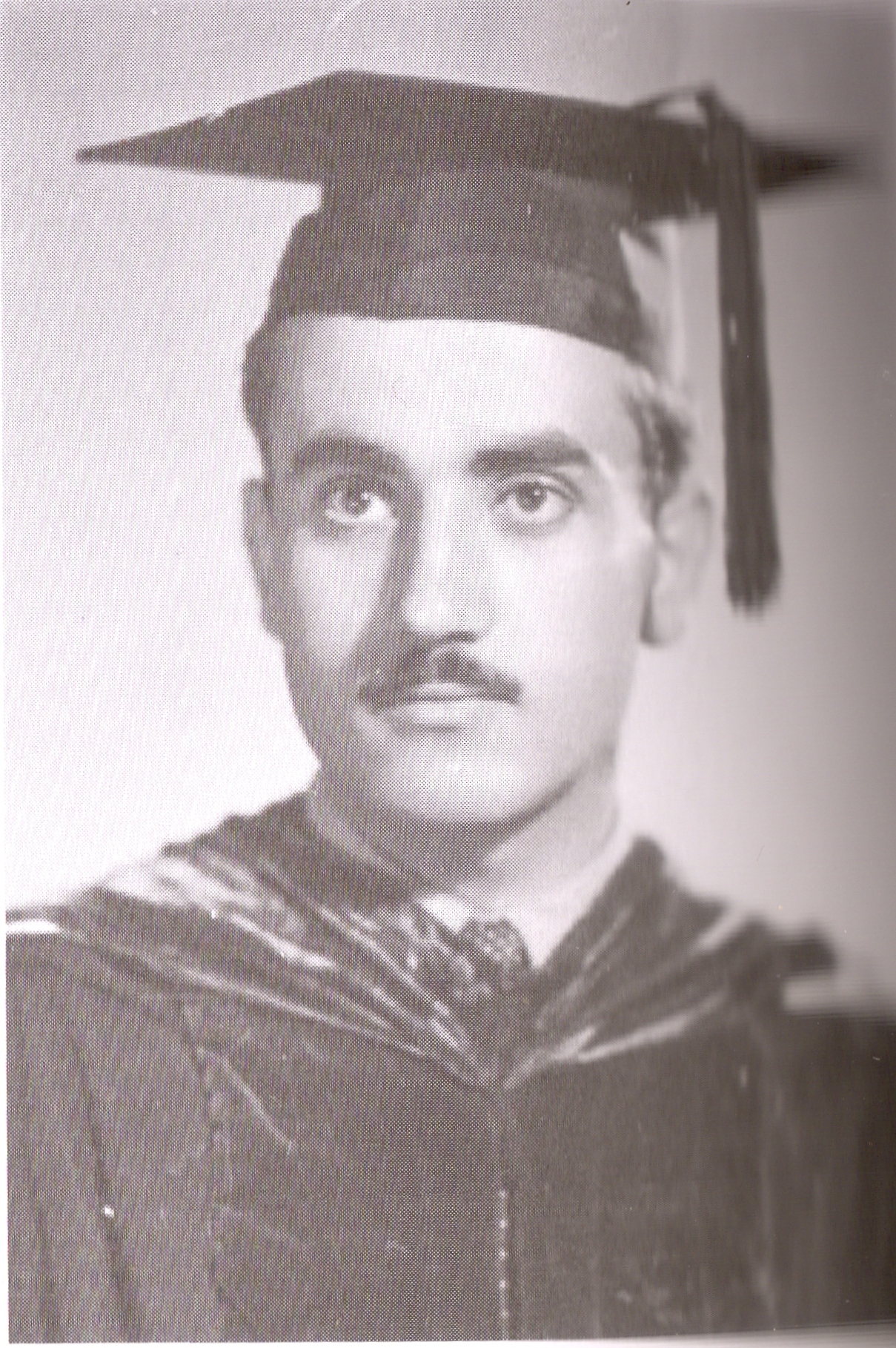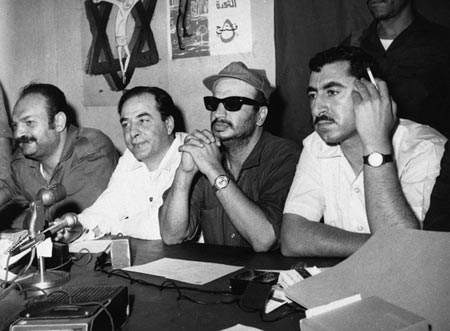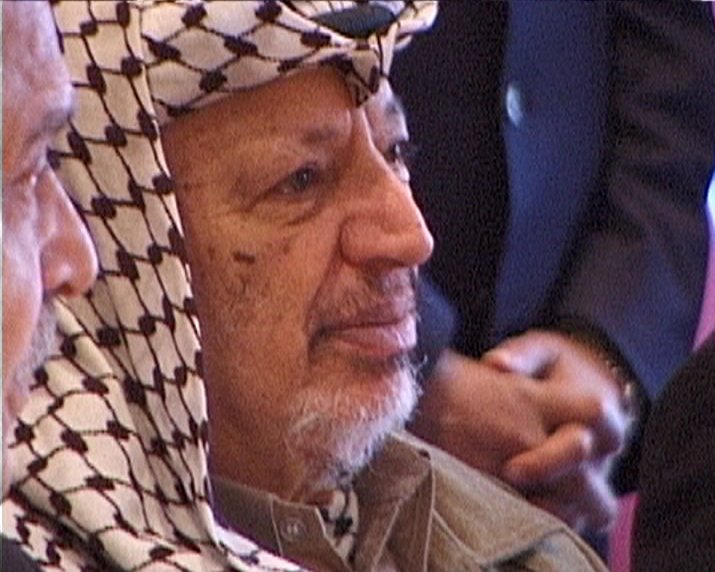 |
George Habash
George Habash ( ar, جورج حبش, Jūrj Ḥabash), also known by his laqab "al-Hakim" ( ar, الحكيم, al-Ḥakīm, "the wise one" or "the doctor"; 2 August 1926 – 26 January 2008) was a Palestinian Christian politician who founded the Marxist–Leninist Popular Front for the Liberation of Palestine (PFLP). Habash served as General Secretary of the PFLP until 2000, when ill health forced him to resign. Early life Habash was born in Lydda (today's Lod) to a Greek Orthodox Christian Palestinian family in 1926. As a child, he sang in the church choir. Habash, a medical student at the American University of Beirut, was visiting his family during the 1948 Arab–Israeli war. In July 1948, the Israeli Defence Force captured Lydda from Jordanian and Arab Liberation Army forces, resulting in all of the town's Arab residents leaving and the death of Habash's sister. Habash and his remaining family became refugees and were not allowed to return home. Political thinkers wh ... [...More Info...] [...Related Items...] OR: [Wikipedia] [Google] [Baidu] |
 |
Popular Front For The Liberation Of Palestine
The Popular Front for the Liberation of Palestine ( ar, الجبهة الشعبية لتحرير فلسطين, translit=al-Jabhah al-Sha`biyyah li-Taḥrīr Filasṭīn, PFLP) is a secular Palestinian Marxism–Leninism, Marxist–Leninist and Revolutionary socialism, revolutionary socialist organization founded in 1967 by George Habash. It has consistently been the second-largest of the groups forming the Palestine Liberation Organization (the PLO, founded in 1964), the largest being Fatah (founded in 1959). Ahmad Sa'adat has served as General Secretary of the PFLP since 2001. He was sentenced in December 2006 to 30 years in an Israeli prison. The PFLP currently considers both the Fatah-led government in the West Bank and the Hamas government in the Gaza Strip illegal because elections to the Palestinian National Authority have not been held since 2006. , the PFLP boycotts participation in the Executive Committee of the Palestine Liberation Organization, PLO Executive Committ ... [...More Info...] [...Related Items...] OR: [Wikipedia] [Google] [Baidu] |
 |
Sati' Al-Husri
Sāṭi` al-Ḥuṣrī, born Abu Khaldun Sati' al-Husri,( ar, ساطع الحصري, August 1880 – 1968) was an Ottoman, Syrian and Iraqi writer, educationalist and an influential Arab nationalist thinker in the 20th century. Early life Of Syrian descent, Al-Husri was born in Sana'a, Yemen, to a government official from a wealthy Aleppine family. Frequent moving meant that he never received a formal education from a madrasah but instead spent his formative years studying at the Mekteb-i Mülkiye, a public administration college in Constantinople. Before studying the Arabic language, he learned Turkish and French. When he spoke, he reportedly had a Turkish accent.Dawisha, p.49. Career as an educationalist In 1900, he graduated from the Royal Academy, and worked as a schoolteacher in Ioannina in Epirus, then part of the European territories of the Ottoman Empire. During this period, he began to show an interest in questions of nationality and was exposed to the competing strands ... [...More Info...] [...Related Items...] OR: [Wikipedia] [Google] [Baidu] |
.jpg) |
Military Police
Military police (MP) are law enforcement agencies connected with, or part of, the military of a state. In wartime operations, the military police may support the main fighting force with force protection, convoy security, Screening (tactical), screening, rear reconnaissance, logistic traffic management, counterinsurgency, and detainee handling. In different countries it may refer to: * A section of military forces assigned to police, or garrison, occupied territories, usually during a war. * A section of military forces assigned to policing Prisoner of war Detention (imprisonment), Detentions. * A section of the military responsible for policing the areas of responsibility of the armed forces (referred to as Provost (military police), provosts) against all criminal activity by military or civilian personnel * A section of the military responsible for policing in both the armed forces and in the civilian population (most gendarmeries, such as the National Gendarmerie, French Ge ... [...More Info...] [...Related Items...] OR: [Wikipedia] [Google] [Baidu] |
 |
Six-Day War
The Six-Day War (, ; ar, النكسة, , or ) or June War, also known as the 1967 Arab–Israeli War or Third Arab–Israeli War, was fought between Israel and a coalition of Arab world, Arab states (primarily United Arab Republic, Egypt, Syria, and Jordan) from 5 to 10 June 1967. Escalated hostilities broke out amid poor relations between Israel and its Arab neighbours following the 1949 Armistice Agreements, which were signed at the end of the 1948 Arab–Israeli War, First Arab–Israeli War. Earlier, in 1956, regional tensions over the Straits of Tiran escalated in what became known as the Suez Crisis, when Israel invaded Egypt over the Israeli passage through the Suez Canal and Straits of Tiran, Egyptian closure of maritime passageways to Israeli shipping, ultimately resulting in the re-opening of the Straits of Tiran to Israel as well as the deployment of the United Nations Emergency Force (UNEF) along the Borders of Israel#Border with Egypt, Egypt–Israel border. In ... [...More Info...] [...Related Items...] OR: [Wikipedia] [Google] [Baidu] |
 |
Yasser Arafat
Mohammed Abdel Rahman Abdel Raouf al-Qudwa al-Husseini (4 / 24 August 1929 – 11 November 2004), popularly known as Yasser Arafat ( , ; ar, محمد ياسر عبد الرحمن عبد الرؤوف عرفات القدوة الحسيني, Muḥammad Yāsir ʿAbd al-Raḥmān ʻAbd al-Raʼūf ʿArafāt al-Qudwa al-Ḥusaynī; ar, ياسر عرفات, Yāsir ʿArafāt) or by his kunya Abu Ammar ( ar, أبو عمار, ʾAbū ʿAmmār, links=no), was a Palestinian political leader. He was Chairman of the Palestine Liberation Organization (PLO) from 1969 to 2004 and President of the Palestinian National Authority (PNA) from 1994 to 2004. Ideologically an Arab nationalist and a socialist, he was a founding member of the Fatah political party, which he led from 1959 until 2004. Arafat was born to Palestinian parents in Cairo, Egypt, where he spent most of his youth and studied at the University of King Fuad I. While a student, he embraced Arab nationalist and anti-Zionist ... [...More Info...] [...Related Items...] OR: [Wikipedia] [Google] [Baidu] |
 |
Fatah
Fatah ( ar, فتح '), formerly the Palestinian National Liberation Movement, is a Palestinian nationalist social democratic political party and the largest faction of the Confederation, confederated multi-party Palestine Liberation Organization (PLO) and second-largest party in the Palestinian Legislative Council (PLC). Mahmoud Abbas, the President of the Palestinian Authority, is a member of Fatah. Fatah is generally considered to have had a strong involvement in revolutionary struggle in the past and has maintained #Armed factions, a number of militant groups.Terrorism in Tel Aviv ''Time (magazine), Time'' Friday, 13 Sep 1968 [...More Info...] [...Related Items...] OR: [Wikipedia] [Google] [Baidu] |
|
Palestine Liberation Organization
The Palestine Liberation Organization (PLO; ar, منظمة التحرير الفلسطينية, ') is a Palestinian nationalist political and militant organization founded in 1964 with the initial purpose of establishing Arab unity and statehood over the territory of former Mandatory Palestine, in opposition to the State of Israel. In 1993, alongside the Oslo I Accord, the PLO's aspiration for Arab statehood was revised to be specifically for the Palestinian territories under an Israeli occupation since the 1967 Arab–Israeli War. It is headquartered in the city of Al-Bireh in the West Bank, and is recognized as the sole legitimate representative of the Palestinian people by over 100 countries that it has diplomatic relations with.Madiha Rashid Al-Madfai, ''Jordan, the United States and the Middle East Peace Process, 1974–1991'', Cambridge Middle East Library, Cambridge University Press (1993). . p. 21:"On 28 October 1974, the seventh Arab summit conference held in Rab ... [...More Info...] [...Related Items...] OR: [Wikipedia] [Google] [Baidu] |
|
 |
Beirut
Beirut, french: Beyrouth is the capital and largest city of Lebanon. , Greater Beirut has a population of 2.5 million, which makes it the third-largest city in the Levant region. The city is situated on a peninsula at the midpoint of Lebanon's Mediterranean coast. Beirut has been inhabited for more than 5,000 years, and was one of Phoenicia's most prominent city states, making it one of the oldest cities in the world (see Berytus). The first historical mention of Beirut is found in the Amarna letters from the New Kingdom of Egypt, which date to the 14th century BC. Beirut is Lebanon's seat of government and plays a central role in the Lebanese economy, with many banks and corporations based in the city. Beirut is an important seaport for the country and region, and rated a Beta + World City by the Globalization and World Cities Research Network. Beirut was severely damaged by the Lebanese Civil War, the 2006 Lebanon War, and the 2020 massive explosion in the ... [...More Info...] [...Related Items...] OR: [Wikipedia] [Google] [Baidu] |
|
United Arab Republic
The United Arab Republic (UAR; ar, الجمهورية العربية المتحدة, al-Jumhūrīyah al-'Arabīyah al-Muttaḥidah) was a sovereign state in the Middle East from 1958 until 1971. It was initially a political union between Egypt Egypt ( ar, مصر , ), officially the Arab Republic of Egypt, is a transcontinental country spanning the northeast corner of Africa and southwest corner of Asia via a land bridge formed by the Sinai Peninsula. It is bordered by the Med ... (including the occupation of the Gaza Strip by the United Arab Republic, occupied Gaza Strip) and Syrian Republic (1946–63), Syria from 1958 until Syria seceded from the union after the 1961 Syrian coup d'état. Egypt continued to be known officially as the United Arab Republic until 1971. The republic was led by President of Egypt, Egyptian President Gamal Abdel Nasser. The UAR was a member of the United Arab States, a loose confederation with the Mutawakkilite Kingdom of Yemen, whic ... [...More Info...] [...Related Items...] OR: [Wikipedia] [Google] [Baidu] |
|
|
Syria
Syria ( ar, سُورِيَا or سُورِيَة, translit=Sūriyā), officially the Syrian Arab Republic ( ar, الجمهورية العربية السورية, al-Jumhūrīyah al-ʻArabīyah as-Sūrīyah), is a Western Asian country located in the Eastern Mediterranean and the Levant. It is a unitary republic that consists of 14 governorates (subdivisions), and is bordered by the Mediterranean Sea to the west, Turkey to the north, Iraq to the east and southeast, Jordan to the south, and Israel and Lebanon to the southwest. Cyprus lies to the west across the Mediterranean Sea. A country of fertile plains, high mountains, and deserts, Syria is home to diverse ethnic and religious groups, including the majority Syrian Arabs, Kurds, Turkmens, Assyrians, Armenians, Circassians, Albanians, and Greeks. Religious groups include Muslims, Christians, Alawites, Druze, and Yazidis. The capital and largest city of Syria is Damascus. Arabs are the largest ethnic group, ... [...More Info...] [...Related Items...] OR: [Wikipedia] [Google] [Baidu] |
|
.jpg) |
Hussein Of Jordan
Hussein bin Talal ( ar, الحسين بن طلال, ''Al-Ḥusayn ibn Ṭalāl''; 14 November 1935 – 7 February 1999) was King of Jordan from 11 August 1952 until his death in 1999. As a member of the Hashemite dynasty, the royal family of Jordan since 1921, Hussein was a 40th-generation direct descendant of Muhammad. Hussein was born in Amman as the eldest child of Talal bin Abdullah and Zein al-Sharaf bint Jamil. Talal was then the heir to his own father, King Abdullah I. Hussein began his schooling in Amman, continuing his education abroad. After Talal became king in 1951, Hussein was named heir apparent. The Jordanian Parliament forced Talal to abdicate a year later due to his illness, and a regency council was appointed until Hussein came of age. He was enthroned at the age of 17 on 2 May 1953. Hussein was married four separate times and fathered eleven children including King Abdullah II of Jordan. Hussein, a constitutional monarch, started his rule with what ... [...More Info...] [...Related Items...] OR: [Wikipedia] [Google] [Baidu] |
|
Arab Nationalism
Arab nationalism ( ar, القومية العربية, al-Qawmīya al-ʿArabīya) is a nationalist ideology that asserts the Arabs are a nation and promotes the unity of Arab people, celebrating the glories of Arab civilization, the language and literature of the Arabs, and calling for rejuvenation and political union in the Arab world. Its central premise is that the people of the Arab world, from the Atlantic Ocean to the Indian Ocean, constitute one nation bound together by common ethnicity, language, culture, history, identity, geography and politics.Sela, 151 One of the primary goals of Arab nationalism is the end of Western influence in the Arab world, seen as a "nemesis" of Arab strength, and the removal of those Arab governments considered to be dependent upon Western power. It rose to prominence with the weakening and defeat of the Ottoman Empire in the early 20th century and declined after the defeat of the Arab armies in the Six-Day War. [...More Info...] [...Related Items...] OR: [Wikipedia] [Google] [Baidu] |